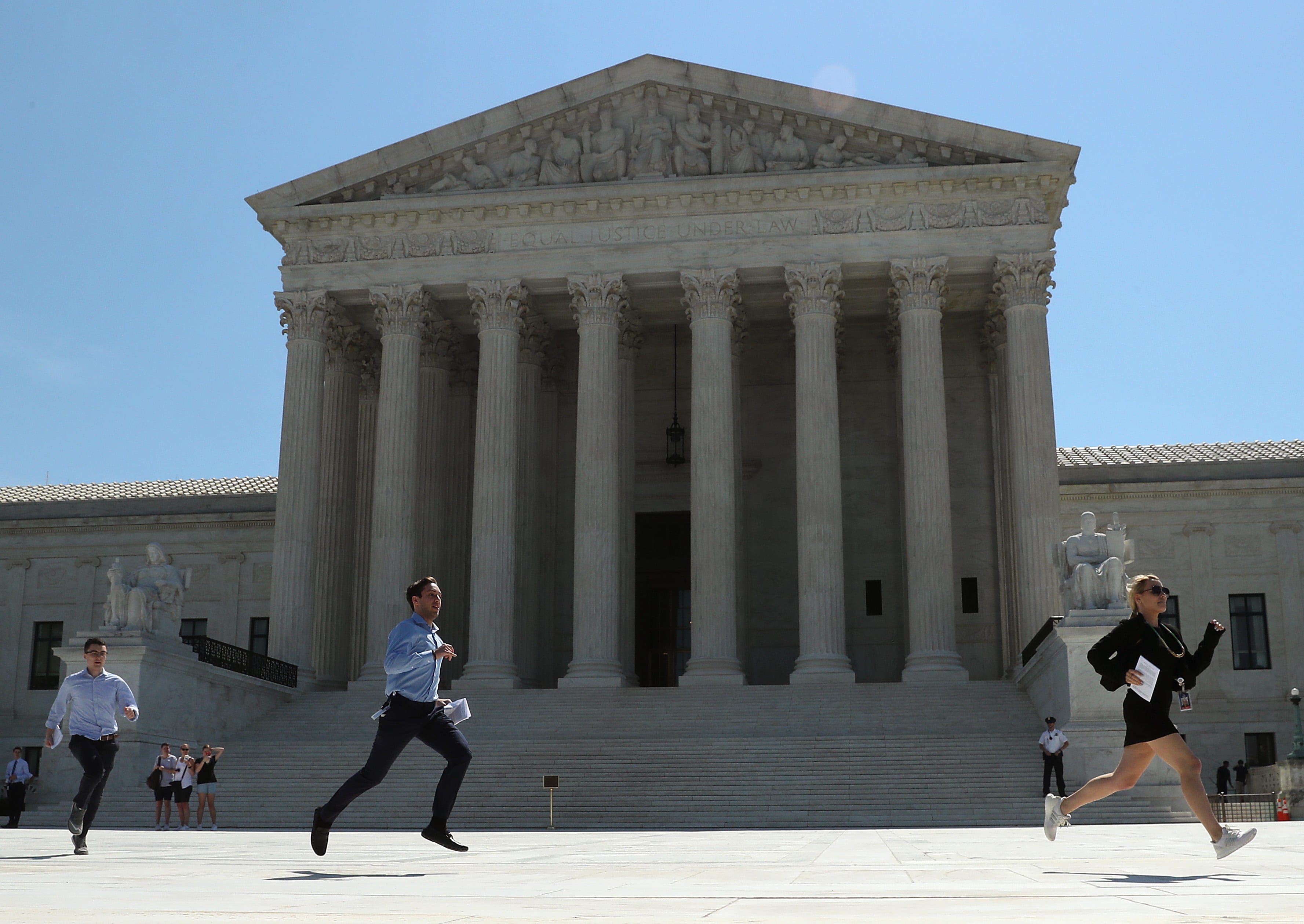It’s graduation season, and while normally that’s a sore point for a government that long struggled to recruit young applicants, new data shows Uncle Sam may be finally getting an edge on Silicon Valley and Wall Street in the competition for talent.
More students hoping to go into tech are applying to jobs in the government, while traditional tech giants, like software and internet companies, saw their share of applications decrease over the last year. A report from Handshake, an online job board, shows that tech majors’ applications submitted to government employers more than doubled between 2022 and 2023. Meanwhile, the share submitted to tech companies fell six percentage points in that same timeframe.
“Tech has been one of the most attractive industries for new grads over the past [10 plus] years, while government employers have had a harder time attracting early talent,” said Christine Cruzvergara, chief education strategy officer at Handshake, in an email. “So to see tech losing its share of applications while the government experiences gains is a fundamental shift, and we believe both are related to underlying changes in what early talent is looking for.”
RELATED

That’s a trend that has been emerging recent years, dating back to the tech job losses in 2022. Recent instability showcased by hundreds of Big Tech layoffs at Apple, Google, Tesla and others have cast doubt on the stability of that job market, and young people seem to have been paying attention, she said.
“I wouldn’t be surprised if what they saw felt particularly shocking, especially as much of this generation grew up watching these companies scale and dominate the tech market,” Cruzvergara said.
Driving an uptick in government tech work is also the fact there are more jobs available. Public sector openings are up 25%, while popular private sector opportunities have fallen, according to the report. Seeking to capitalize on the young workforce, the federal government has made a more concerted effort to build up training and hiring for burgeoning AI initiatives in particular.
To be sure, tech companies are still receiving more job applications on the whole than the government is — by about three times. Finance firms also receive a large share, about 20% of all job applications, compared to 7% for the government. But Wall Street, too, has been hit with job losses in the first quarter of 2024, with companies like PayPal and Citigroup each announcing thousands of upcoming cuts, according to Reuters.
Against that backdrop, students are evaluating their options on the market, and perceptions of stability could be the determining factor in as many as 76% of individual cases. Job security remains the single biggest factor influencing graduates’ job searches, followed by location, employer reputation and then pay.
“I received an offer to work for a federal agency while in college,” said one respondent interviewed in the report. “After graduating, I expect to be converted permanently with a raise. Working for the federal government will open doors for me, and I’m extremely thankful to be in a secure position where I don’t have to worry about being laid off.”
RELATED

Stability is where government work often wins. The necessity of government work provides for a relatively stable source of employment that has fluctuated little in the last two decades.
The Biden administration claims to have made progress attracting younger workers to the government. For years, the number of federal workers under 30 has hovered around 7% — a small fraction of the 2-million strong workforce. However, according to the Office of Management and Budget, that share has increased by 13% in the last few years. Even so, it will take time for recruiting efforts to materialize within agencies, as the hiring process is often slower than in the private sector. This administration in particular echoed feedback from HR reps who have said students pass up federal internships for better pay, quicker offers and less red tape surrounding workplace benefits, like telework.

Outreach remains key to luring young people to government work, federal HR officials have said. With some agencies simply writing vague job announcements and posting them online with few additional insights into culture, there’s an opportunity missed to connect with students on a more personal level.
And the data shows that’s what they want.
Three-quarters of recent graduates read reviews from current and former employers before submitting a job application, and a majority are more keen on applying if they know about a company’s culture or values, according to the findings.
Another pressure facing new grads is student loan debt. As many as 70% of them will have student debt by they time they graduate with a bachelor’s degree, according to the Urban Institute. And with the federal government operating on a meritocracy that rewards experience, young professionals may find themselves on the lower end of the pay scale with less room to negotiate.
RELATED

Knowing these issues can be a significant barrier to recruitment, federal unions and employee groups have long pushed for pay reform to modernize the General Schedule to be more reflective of a more educated and skills-diverse society.
On USAJobs, the federal government’s premiere job board, some starting salaries for fresh graduates range from about $36,000 to $70,000. Some of the jobs are based in big cities, like New York and Washington, D.C., but do not offer remote work. And some agencies still offer internships that are unpaid.
“The cost of living is so high right now, and salaries seem so low,” said another respondent to Handshake’s survey. “I have so much I want to save for, but I’m looking at starting salaries of $40,000 a year, which means half my salary would go to my rent. What about health insurance, car insurance, utilities, student loans? Everything seems so expensive and working eight hours a day isn’t enough.”
Molly Weisner is a staff reporter for Federal Times where she covers labor, policy and contracting pertaining to the government workforce. She made previous stops at USA Today and McClatchy as a digital producer, and worked at The New York Times as a copy editor. Molly majored in journalism at the University of North Carolina at Chapel Hill.





